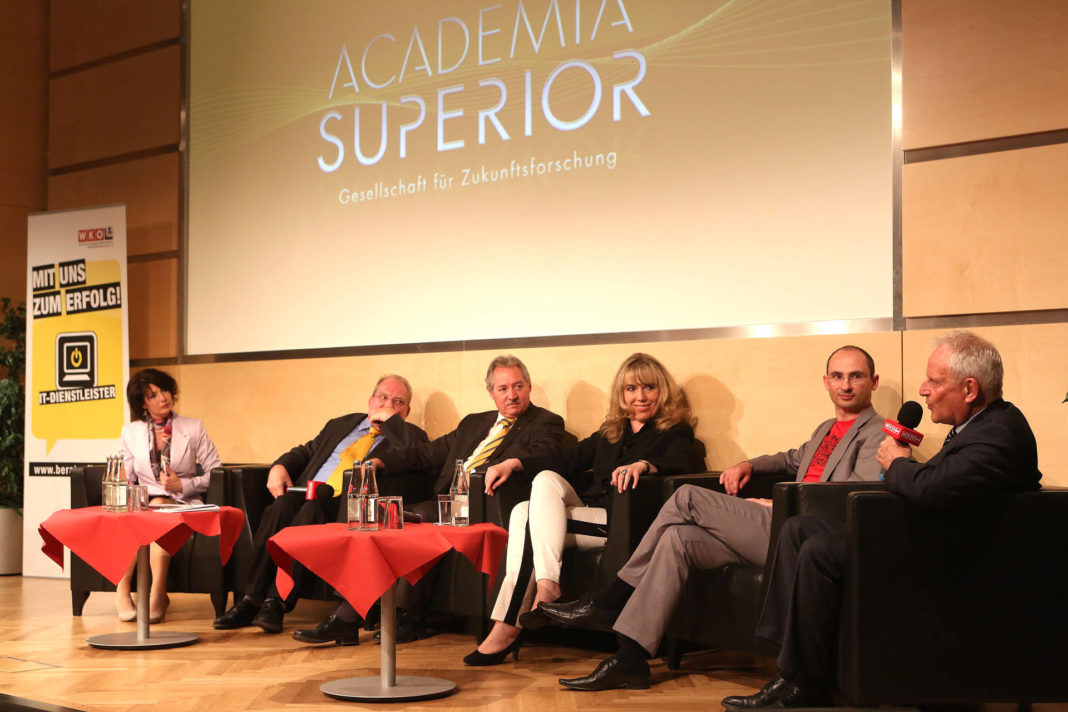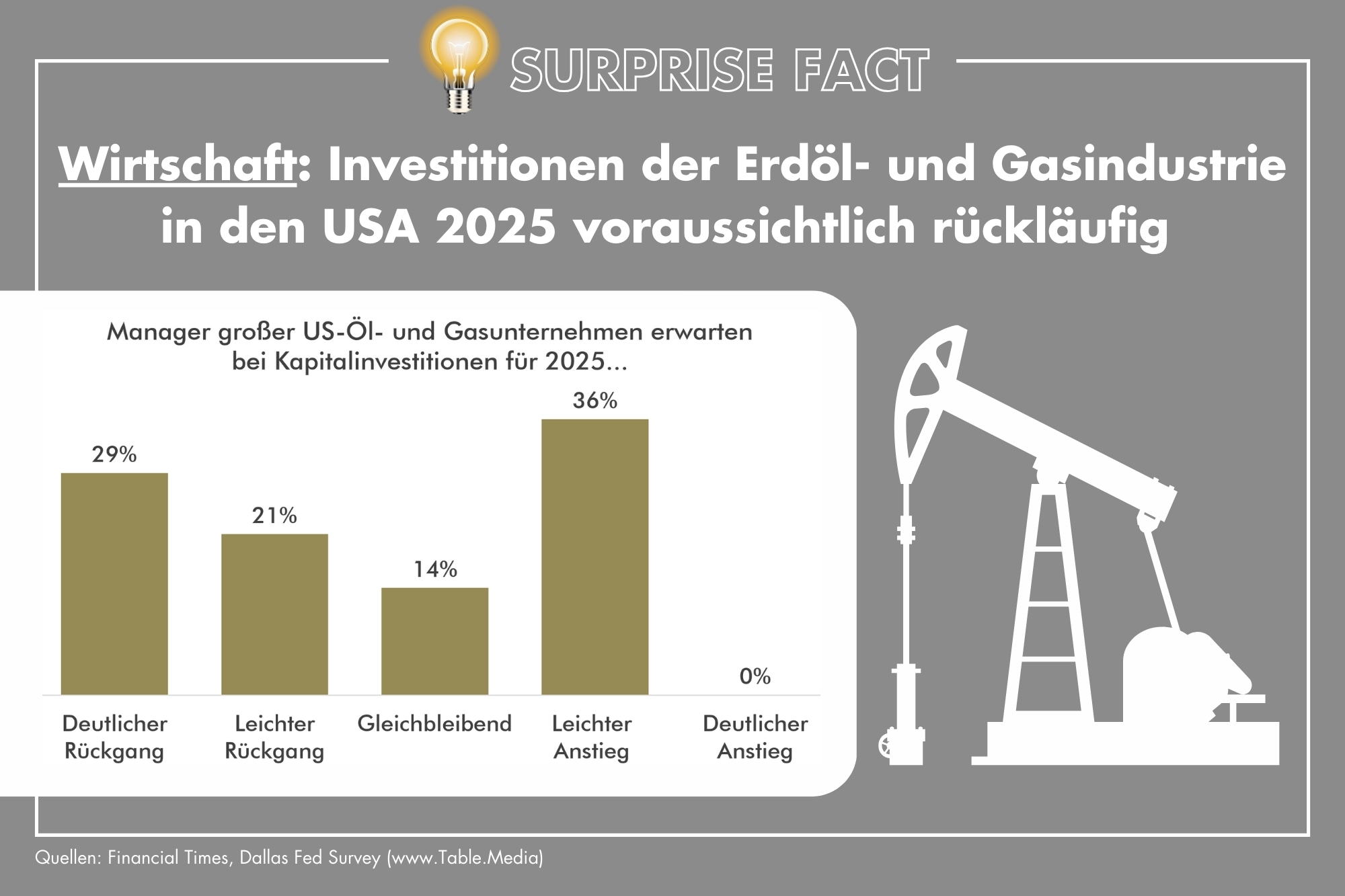„ICT location Upper Austria requires awareness for information and communication technology as counter strategy for the shortage of skilled workers.”
Information and Communication Technology (ICT) is an elementary factor for Upper Austria as business location. They contribute in many ways to the competitiveness of Upper Austrian economy: „Increasing productivity can be traced back to the use of ICT,” ACADEMIA SUPERIOR president Mag. Michael Stugl stressed in the event „Information and Communication Technology — driving force for economy and society” hosted by ACADEMIA SUPERIOR — society for future studies and the unit for consulting and information technology by the Upper Austrian Federal Economic Chamber on May 22, 2012 at the Upper Austrian Federal Economic Chamber in Linz.
One problem is that the awareness for ICT among the population is still fairly low. This also leads to a shortage of skilled workers in this segment because the existing educational institutions in this field are not used enough, as Strugl stresses. This is also the result of discussions with ICT businesses in all of Upper Austria prior to the event. The results from these discussions and the event will be part of ACADEMIA SUPERIOR’s economic policy reform agenda for Upper Austria.
However, compared to other regions of Austria Upper Austria is very well of: „We have no reason to be ashamed, with the Softwarepark Hagenberg, Johannes Kepler University and the Colleges we are positioned very well. Moreover, the planned IT-cluster is a promising project, but still we have to face a number of challenges.” Apart from the shortage of skilled workers Strugl also mentioned finances and the support of strongly growing ICT businesses and the question of ICT infrastructure and future challenges.
Also DI Winfied Seyruck, president of the unit consulting and information technology by the Upper Austrian Federal Commercial Chamber, stressed that in comparison to other regions, Upper Austria has the second highest number of employees in ICT after Vienna. Moreover, in contrast to other regions there is a strong center force in ICT in Upper austria: „We have a lot of software producers and market leaders in Upper Austria, Upper Austria is also a great location for the founding of ICT businesses.” However, Seyruck also warns from a shortage of skilled personnel: „In 2020, when the first generation of computer scientists retires we have a meltdown.” To counter this development one has to interest more women in ICT and build on education.
The key lecture of the eventing by Tobias Weber, project leader of „Mentoring-report Germany Digital” by TNS Infratest dealt with the question what do the best ICT locations of the future require? First, corresponding digital structures, like high-quality technological infrastructure or legal regulations have to exist that guarantee innovative ICT businesses best possible courses of action. Second, one has to build on „digital knowledge”, to guarantee for education and the attractiveness of institutions to make sure that enough human resources are available Third, also highly innovative and fast growing „digital business models” have to be pushed, according to Weber. The keystones are acceptance and spreading of new technology and applications, finding the best people, clusters, venture capital, getting new products on the market quickly, bringing together innovation and business models, entrepreneurship, the concentration of growing markets and international location marketing.
In a panel discussion, Wirtschaftslandesrat Viktor Sigl, Univ.-Prof. Dr. Erich Peter Klement, member of the ACADEMIA SUPERIOR advisory board, Mag. Eveline Pupeter-Fellner, CEO of emporia Telecom, Univ.-Prof. Dr. Bruno Buchberger, director of the Softwarepark Hagenburg and DI Bernd Greifeneder, CTO of dynaTrace software talked about the potential and perspectives of the ICT location of Upper Austria. Sigl reproted that the preparations for the foundation of the Upper Austrian IT-cluster are in full blast and it will start in fall 2012 or January 2013. According to Prof. Klement the IT cluster has the potential to intensify the cooperation between research and small and medium-sized companies.
Univ.-Prof. Buchberger stressed that Softwarepark Hagenberg as spin-off of the University of Linz is an example for the close interaction of fundamental research and economy. According to him, the essential starting points for Upper Austria are the innovation spiral consisting of research, education, economy, and capital which generates progress and growth. This spiral has to be enriched with a fifth element: lifestyle. Upper Austria has to create an attractive climate so that young people come and stay: „Our goal must be to bring enthusiastic young people to Upper Austria by combining technology and lifestyle.”
DI Greifeneder stressed that there are conflicts of aims and timing between research institutions and companies because the latter have to enter the market quickly. Therefore, cooperations with research institutions take place for longer term topics and projects that are less urgent. „For more pressing issues we take research in our own hands”, says Greifeneder.
LR Sigl said about ICT-infrastructure that the Upper Austrian broadband initiative sets an important course. He is positive for the realization and the costs of the connection of companies to the fiber optic cable network.
In terms of ICT competence Mag. Pupeter-Fellner and Prof. Klement agreed that this is especially important for older members of society, who have had less contact with ICT and have constraints against it. Prof. Klement also sees a social dimension of this problem since the lack of ICT competence intensifies the isolation and loss of connection of older people. Therefore one has to equip older generations with ICT basic competences before they retire.







